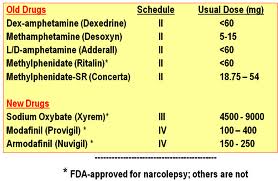The use of drugs to stay awake is believed to be common among college students, truck drivers and workers on night shifts, and this can significantly improve the quality of life of people with narcolepsy. There are some basic choices of drugs to stay awake and alert, although their effectiveness varies widely among individuals.The most popular drugs to stay awake
The caffeine and prescription drugs are the most commonly used legal drugs to stay awake. It speeds up the functions of the central nervous system, providing a boost to physical and mental energy.
Caffeine is a psychoactive stimulant found in some plants. Drinks containing caffeine (like coffee, tea, soda and energy drinks) and caffeine pills are the most popular and accessible drugs used to stave off sleep and promote alertness. In fact, caffeine is the most commonly used psychoactive substance in the world.
Most pills contain 200mg caffeine dose, about the same as the average 12-ounce cup of coffee. Most experts consider this the optimal dose, but caffeine affects everyone differently. Moreover, as with most drugs, people can create a tolerance effect with continued use.
While many people think of caffeine as a food product is a drug that carries the risk of side effects, addiction, withdrawal symptoms and abuse. Side effects may include upset stomach, headache, insomnia, frequent urination, tremor, anxiety, irritability, muscle cramps, fainting, and aggravation of ulcers. Serious side effects requiring medical attention include dizziness, rapid breathing, chest pain, drowsiness, and disorientation.Prescription Drugs
Many people rely on pharmaceutical products produced by amphetamines and similar compounds, such as Ritalin, Adderall, Dexedrine and Desoxyn to stay awake. This is an off-label (non-approved FDA) for use of these drugs, which have been approved to treat attention-deficit disorder (ADD), and attention-deficit hyperactivity disorder (ADHD).
Using these drugs to stay awake is widely considered by health professionals as an unhealthy, overly risky option as it is highly addictive and prone to abuse. A study by Northeastern University found that three quarters of prescription stimulant abuse results from students using drugs to stay awake and on top of the class work.
The effects of these drugs can include insomnia, headaches, stomach disorders, loss of appetite, weight loss, nervousness, irritability, depression, and involuntary movements. Rarely, a dangerous increase in blood pressure, paranoia, psychosis, and seizures can result.Narcolepsy
Narcolepsy is an incurable but manageable sleep disorder that causes sporadic bouts of extreme fatigue and sudden onset of sleep. People with narcolepsy bypass the first stages of sleep, non rapid eye movement (NREM) sleep and begin a deeper rapid eye movement immediately (REM) stage. Narcolepsy can be quite disruptive in daily life, but fortunately, the use of drugs to stay awake, in combination with medications for other symptoms and lifestyle changes can help.
To stay awake, narcoleptics rely on prescription stimulants such as those used to treat ADHD. A newer drug, modafinil, is gradually replacing older drugs such as Ritalin and Adderall. Modafinil has two main advantages over other drugs is much less addictive, and does not cause increases in crashes and disposal associated with traditional stimulants.Natural Alternatives to Drugs
For people who experience side effects, are prone to addiction, or simply prefer to avoid taking unnecessary medicines, there are alternatives to drugs to stay awake longer.
* Engage in intense, aerobic exercise to stimulate body and mind. Increased heart rate and blood flow and release of adrenaline can help you stay awake for several hours.
* Take a 15 to 25 minute nap. A very short, timed nap is refreshing. However, if placed in deep stages of sleep, wake up more tired.
* Keep the air conditioner at low levels. Warmth lulls the body to sleep, and vice versa, is only slightly too cold for comfort prevents the body from slowing down and sleep.
Over-the-Counter Supplements
There are numerous supplements marketed for boosting energy. However, the "natural" does not necessarily mean drug-free; Many of these supplements contain high doses of caffeine. Some may even be dangerous, including multiple stimulants. Because the FDA does not regulate supplements, there is no guarantee that it is safe and effective. In addition, many supplements can affect or interact with prescription drugs. Always check with your doctor before taking any supplement.










No comments:
Post a Comment